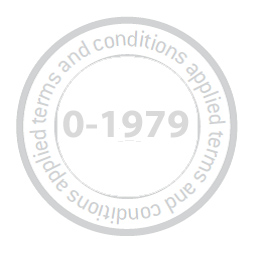I could sleep in the most haunted house ever and whatever remnant of a person hanging around there from the next world will leave me alone, in fact very probably studiously ignore me. I’m whatever the opposite of psychic is…I’m a hylic (which is a brilliant word) apparently, or somatic, grounded to matter. According to Wikipedia the Gnostics consider me evil and doomed. Probably so do lots of poets and artists. I’m an editor/Curator after all. It’s not that I don’t believe in spirits, I just figure that the next world mustn’t be up to much if you feel you’d have to hang about Derry and scare the **** out of people. Besides, I’ve always thought that the living are much more frightening than the dead.
And it’s the living the bring ghosts to life. Resurrecting old ideas and philosophies that should have been abandoned aeons ago or letting in things that lurked at the edges of societal consciousness. That’s the concept behind our Dance the Ghost issue. We have the foremost in technology to listen to the old songs, to find community in the most ancient of concepts, the need to belong, to survive. The words are matter, heavy with meaning and non-meaning. Always contextual but often out of context. Our nostalgia makes us safe. The snake-oil sellers know this of course. They sell identity, ‘not being’, a place/a non-place and the only antidote for this venom is to question meaning and motive. But even critique has been poisoned and lies heavy with conspiracy, accusation and blame.
‘Dance the Ghost’ will be our fifth publication this year, together with three exhibitions and ten postcards and a ReZoning of our entire back catalogue. Just coming off a bout of Covid (the virus finally got me) I think it’s a quite a lot and yet somehow never enough. If it was possible I’d have an Abridged ‘something’ every day. Fortunately for me and Susanna it’s not, Nietzsche and abysses etc. Though the thing about the abyss is that it isn’t dark and silent, it gleams with pretty colours and is loud with opinion and apparent sincerity. Hunter S. Thompson in Generation of Swine called it well:
“Who knows? If there is in fact, a heaven and a hell, all we know for sure is that hell will be a viciously overcrowded version of Phoenix — a clean well lighted place full of sunshine and bromides and fast cars where almost everybody seems vaguely happy, except those who know in their hearts what is missing… And being driven slowly and quietly into the kind of terminal craziness that comes with finally understanding that the one thing you want is not there.
That’s what has driven humanity to great accomplishments, the knowledge that life can be better, that the something missing can be replaced with something better. And eventually that’s what will destroy it when we realise that whatever is missing can’t ever be bettered by replication and repetition and we are left with ourselves, alone.
0 – 88: Submission Call
Old ideas, long thought dead, revived and revitalised but as corrupt as ever. An eruption of the realm of the dead into that of the living, of past into present, lost into here, a ghost is always a transgression of the separations we live by, the architecture that makes us feel secure. Ghosts are the personification of haunting. Haunting is a corruption of the linear, of any straight line of progress or assurance. Not quite a circling, a ghost is a fold in our map, something we might trip over, something full of shadows. Populists and snake-oil sellers turned necromancers with nothing new to offer but the old and the worn out. We love our Ghosts.
‘Ghost’ itself is haunted with the old and troubled distinctions between psyche and body, mind and matter, ‘spirit’ and material world. ‘Ghost’ returns us to the impossible question of what it means to be alive, the existential (and ethical) curtain between animate and inanimate, subject and object, and, by extension, ‘I’ and other, individual and community, self and swarm, dancer and dance. We are afraid we don’t know how to answer, and the walls of our logic are never quite sound-proof. From the other side something we can’t see is always moaning.
What part of the living continues on as ‘ghost’ (‘real’ or imaginary) and does that mean it was there all along? If the ghost is ‘in the machine’, does it control the levers of the body or does the body generate the ghost? Did Frankenstein’s monster have a ghost to leave behind, or was he already a ghost made flesh? Could A.I.s eventually have something we will be willing to call ‘ghosts’? If a zombie is undead, what’s happened to its ghost? And is this what we are most afraid of? How much of our ‘self’ is actually everything that haunts us? We are afraid of dissolution as the ‘other’ approaches and increases and so we dissolve ourselves in old fears, tropes and clichés.
Perhaps at their most uncanny, ghosts aren’t singular and distinct apparitions, things we can look directly at, but environments: the habitats, conversations, languages, communities, traditions, rituals that we move in and that move us, that we breathe and exhale, that give us meaning and that we keep alive. Traditionally, ghosts may be patterns of the past lingering in our future, footprints we retrace, refill, reread. And that’s why we sell ourselves to the nostalgists.
‘I hear the roar of a big machine. Two worlds and in between. I hear empire down. We don’t doubt, we don’t take reflection. … dance the ghost with me.’ (Andrew Eldritch)
Abridged is looking for poetry and/or art from Irish poets/artists or poets/artists based on the island of Ireland that explores how the past is always with us no mater how we try to escape it, both in a society and personal context. You can send up to three poems (on MS Word or similar) or three pieces of art (at 300dpi or above) to abridged@ymail.com. Please also send a short bio. Please don’t send us blank emails with just an attachment as they may end up in the Spam folder and we may not see them. The deadline for submissions is 10th September 2022.
This issue is supported by the Arts Council of Ireland. Abridged is supported by The Arts Council of Northern Ireland

